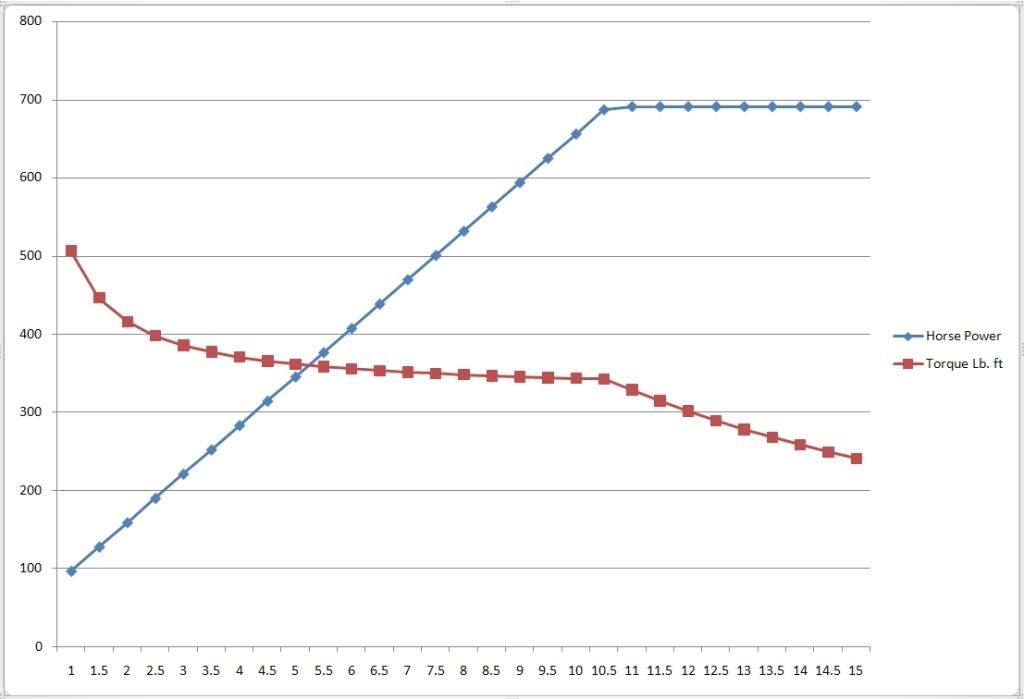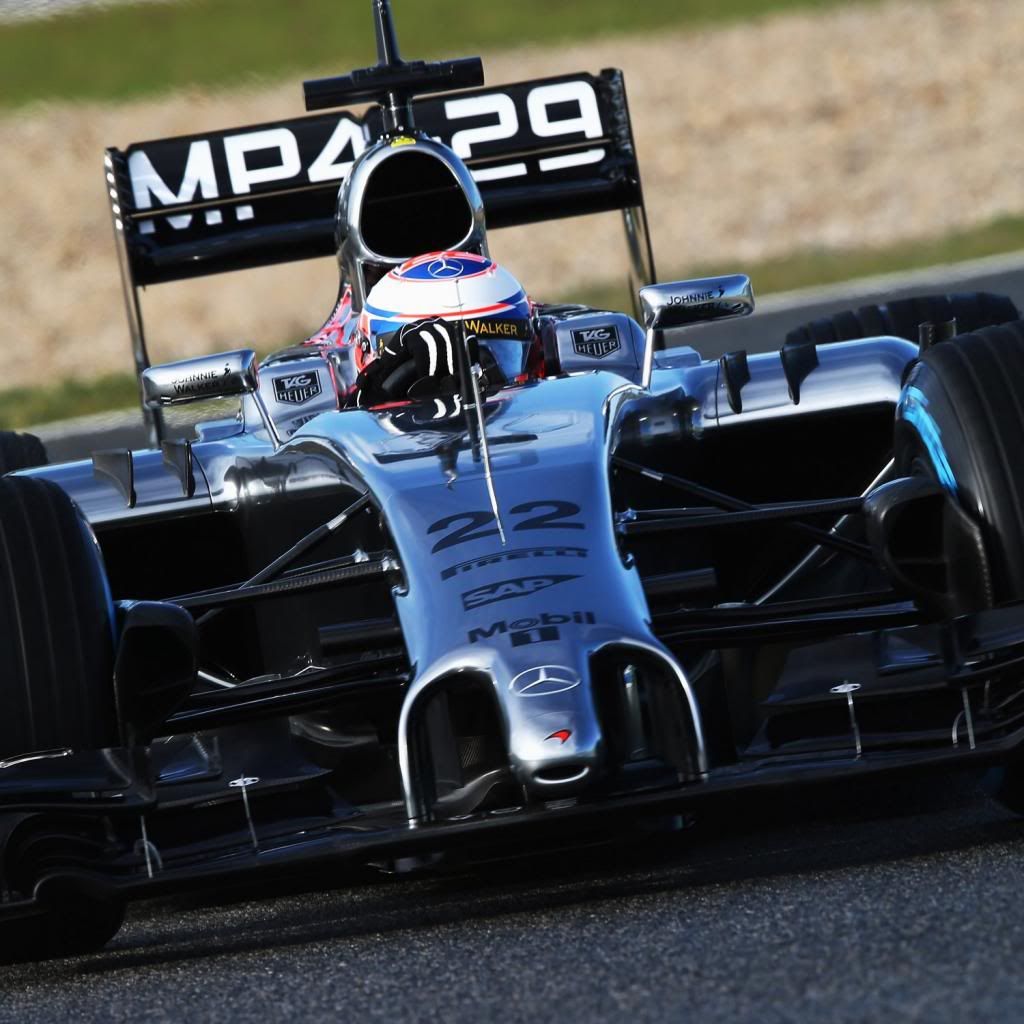Actually, I believe that was the original idea with F1T Don.
And yes, MrM banned the CVT as soon as Patrick Head made it work.
- Login or Register
No account yet? Sign up
raymondu999 wrote:10.5k? The things rev up to 15k in the regs, no? As I understand it, there's a rudimentary equation; something like at any given RPM, power = torque*rpm/5252
If power is "basically" or "close to" flat, while rpm is increasing, would that not mean torque would be decreasing in an inversely proportional manner to that rpm?

27.8 gram/sec, or 37.6 cc/sec, where gasoline holds 34.2 kWs/cc, means a powerinput of 1285 kW,bill shoe wrote: ...
Our concensus is that fuel flow for 2014 is good enough for around 600 hp, so a conventional turbo engine will have around 750 hp total with KERS.
...



Well, I don't know about PRO intercoolers.matt21 wrote:Also, in order to have an arguement PRO intercoolers:
Both pictures are taken from the SAE-Paper on the Honda RA168E-engine from 1988.

Neat graph ringo, xactly what I mean, but you should perhaps cut off the tail left of 3-4 kRpm?ringo wrote:raymondu999 wrote:10.5k? The things rev up to 15k in the regs, no? As I understand it, there's a rudimentary equation; something like at any given RPM, power = torque*rpm/5252
If power is "basically" or "close to" flat, while rpm is increasing, would that not mean torque would be decreasing in an inversely proportional manner to that rpm?
here's my prediction.
this assumes the turbine is at full efficienct from zero rpm; which is not the reality. The first part of the curve would start from zero torque instead of infiniti at the beggining.
What's the peak torque of the current v8s ?
Its possible that we will see a reliability drop largely due to the fact that its a new design, but I don't think it will be precipitous. In the long term though, there's no reason that reliability will be worse than it is now. The mclaren mp4-4 from the last turbo era only had 1 engine failure from 16 races.donskar wrote:One thing I look forward to in the new formula is a bit LESS engine reliability. My knowledge of turbo engines is limited to street racer type implementations, but it seems turbos have special requirements such as blowoff valves, turbo timers, intercoolers and piping, precise fuel metering, and lots more (I'll take nitrous). F1 turbos are likely to be FAR more complex, with many more moving parts and ancillaries than the current, bulletproof V8s. Do you tech gurus out there foresee lots of engine failures in the new formula? I wonder if a low-tech, low boost engine (remember Repco?) might be successful in the first several races?

Cheers guys. However would the air box not be going through an increasing velocity, and be feeding more air into the engine? That would cause the engine to *not* flatline, would it not?xpensive wrote:Neat graph ringo, xactly what I mean, but you should perhaps cut off the tail left of 3-4 kRpm?ringo wrote:
here's my prediction.
this assumes the turbine is at full efficienct from zero rpm; which is not the reality. The first part of the curve would start from zero torque instead of infiniti at the beggining.
What's the peak torque of the current v8s ?
